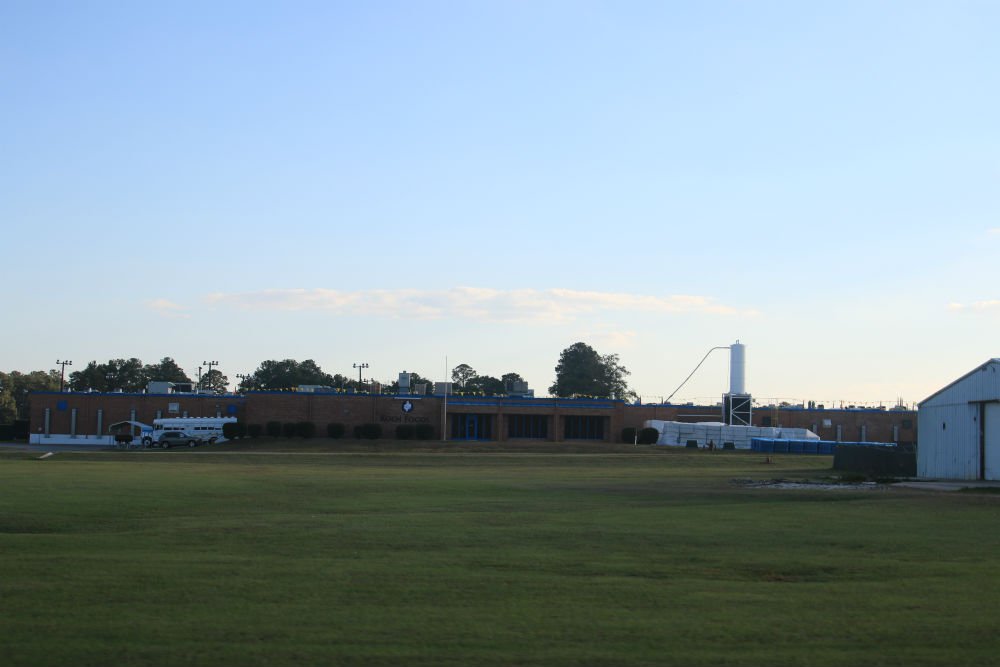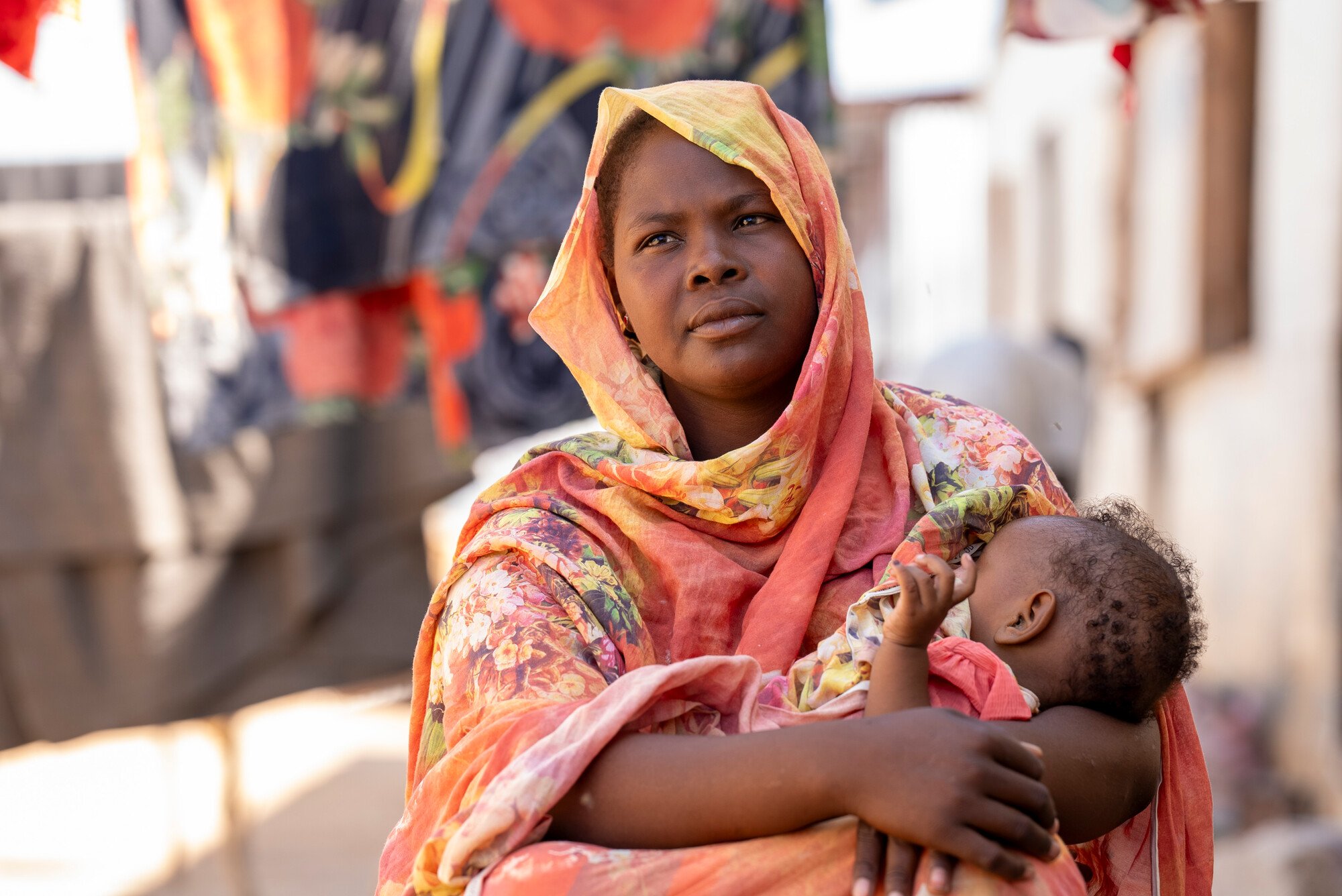When hundreds of Immigration and Customs Enforcement agents swooped down on seven poultry processing plants in central Mississippi on Wednesday, it sent up clouds of “smoke and noise," according to Oxfam’s Joi Owens—leaving those behind scrambling to cope and find the truth. The future for many looks grim.
The first day of school in central Mississippi turned into a horror show on Wednesday. Hundreds of children ended up waiting hours for parents and caretakers in schoolyards and homes—to no end. In the early morning, Immigration and Customs Enforcement (ICE) agents had trapped nearly 700 workers in poultry plants, handcuffed them with plastic zip ties, and bused them away.
While it’s now being reported that roughly 300 workers have been released (mostly women, many parents)—some with ankle monitors—the majority are still in custody.
And what of the families? Oxfam’s Gulf Coast Senior Policy Officer in Mississippi, Joi Owens, is helping to recruit attorneys who can help, while foster families, churches, and advocates are scrambling not just to feed and accommodate the children left behind—but also to locate them.
Finding the truth
Owens says that teachers across the state are asking classrooms, “Who didn’t come to school today?” No one knows how many children are hiding, or lost. The raids, planned and orchestrated far in advance, “had no thought about the families,” she says, noting that roughly half those arrested are parents.
Indeed, those arrested are workers without proper documentation—but they are also parents and grandparents, sisters and caretakers, community leaders and church goers, home owners and business people. Most have been in the US for years, if not decades; they pay taxes and send their children to school.
But mostly, they work. The vast majority of immigrants in Mississippi (and across the country) come to the US to find work, to support families in the US and in their country of origin. They do jobs that play a vital role in our economy and food system: they pick strawberries, flip burgers, debone chickens, and hang pork carcasses.
And they do these jobs because few others are willing to take them on. As Owens says, and countless others have documented, “The conditions are deplorable, and they treat you like crap.” A poultry plant is cold, loud, and wet, full of chemicals and fat and blood; the processing line is fast and relentless; and there is scant dignity or opportunity. (For more about Oxfam’s campaign on behalf of poultry workers, especially in Mississippi, please visit our site and reports.)

And it’s no accident that these plants are filled with immigrants from Mexico and Central America—the industry set out to recruit and transport them to rural Southern states roughly 20 years ago. Employers appreciated that new immigrants work hard, have little recourse if they’re injured, and are rarely willing to speak out abuses. As more than one worker told Oxfam, supervisors regularly say, “If you don’t like it, there’s the door." But workers without proper documentation are too worried to file claims for workers’ compensation, or to organize, or to walk away. (In particular, note the rampant sexual harassment at one of the companies that was raided.)
Our system rests on this continual stream of cheap and compliant labor. And yet—who takes the hit and shoulders the blame when someone wants to blow the alarm about immigrants? Not the employers, nor the politicians—it all falls on the workers, and their families.
And to what end? Carthage, MS is a desolate town in the flat heartland of the poorest state in the country; dominated by noisy, smelly poultry plants, largely populated by immigrants in ramshackle houses. If a few hundred workers disappear, it will slow production and choke the economy.
But mostly, it will decimate the population, and leave the remaining families terrified and bereft.
And that may be the real point.
Blaming the victim
These ICE raids are precisely on point for the Trump administration. Since assuming office, the President has been relentlessly attacking marginalized communities, in word and deed. The raids heighten the climate of fear in the immigrant population, while they feed the nationalist appetite for brute punishment. It's another easy way to project “strength,” present as “tough on crime,” and uphold the “rule of law.”
The reality is far more brutal, and remarkably less effective. Indeed, what the raids did in this case was to tear apart families and stoke hatred and racism. They did nothing to address immigration reform and the real issues at the southern border.
Not surprisingly, the administration’s blunt force has made headlines, but has done little to deter migration. People are still arriving at the US-Mexico border seeking safety; thousands of Central Americans leave their homes out of desperation—to escape gender-based and gang violence, inequality, poverty, and corrupt governments.
The administration betrays our values as a refuge every time it rounds up workers, separates parents from their children, and puts people in cages. And when the US deports, it is often a death sentence.
Ironically, of course, Trump and many industry leaders know all too well how much they rely on immigrant labor—to perform the dirty work in hotels and restaurants and fields and factories.
We all, as an economy and a society and a nation, are committed to the principles that created this remarkable experiment in democracy and freedom. That includes accepting the refugee and immigrant, protecting our families, and honoring hard work.
What can you do? Please consider signing below Oxfam’s petition to Congress about welcoming the most vulnerable to the US.
The Mississippi Center for Immigrant Rights has been working on behalf of immigrants in the state for many years, and welcomes your donations.




